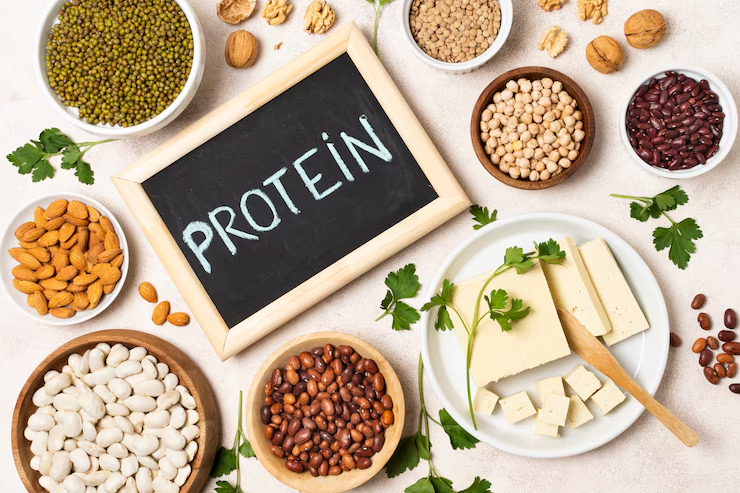In today’s fast-moving world, health and fitness are more important than ever, and metabolism is a common topic when talking about weight loss, energy, and overall wellness. But what exactly is metabolism, and why should we focus on boosting it?
Metabolism is how your body changes the food you eat into energy. A faster metabolism means your body can burn more calories, which helps with managing weight, staying active, and supporting vital body functions like breathing and digestion.
The good news is that there are many natural metabolism boosting tips you can follow. Staying active, drinking water, eating small meals throughout the day, getting enough sleep, and managing stress are all helpful habits. These simple lifestyle changes can naturally speed up your metabolism and improve your health in the long run.
1. Understand Your Metabolism

Before learning how to boost metabolism, it’s important to understand what it really means. Metabolism is the process your body uses to turn food into energy for daily functions, even while you’re resting.
One key part of this process is your Basal Metabolic Rate (BMR). This is the number of calories your body burns just to keep vital functions going, like breathing and maintaining body temperature, without any physical activity.
Your BMR is affected by different things such as age, gender, body size, and muscle mass. For example, people with more muscle usually burn more calories, even at rest. Knowing how BMR works helps you understand why metabolism varies from person to person and how you can take steps to improve it.
Age: Metabolism slows with age.
Muscle Mass: More muscle means a higher BMR.
Gender: Men typically have a higher BMR due to more lean muscle.
Genetics: Some people are simply born with faster metabolisms.
Knowing where you stand can help you tailor the most effective strategy for your body.
2. Build Muscle Through Strength Training
One of the most effective metabolism boosting tips is building more muscle. Muscle tissue burns more calories than fat, even when you’re resting. This means that the more muscle you have, the more energy your body uses every day.
Strength training exercises like lifting weights or using resistance bands can help you increase muscle mass. Over time, this can lead to a higher Basal Metabolic Rate (BMR), which means your body will burn more calories naturally.
Adding strength workouts to your weekly routine is a smart way to support long-term metabolism health. Even short sessions a few times a week can make a difference. Along with good nutrition and rest, building muscle is a key step in keeping your metabolism active and healthy.
Why It Works:
Muscle tissue burns more calories than fat, even when you’re resting. This means your body needs more energy to maintain muscle, helping boost your metabolism throughout the day. So, even without physical activity, having more muscle increases the number of calories your body naturally burns, making it a helpful factor in managing weight and improving overall energy use.
How to Implement:
Including resistance training (e.g., weight lifting, bodyweight exercises) 3–4 times per week.
Focus on compound movements like squats, deadlifts, and bench presses that work multiple muscle groups.
Gradually increase weights and intensity to challenge your muscles.
3. Don’t Skip Protein

Eating enough protein is one of the most helpful metabolism boosting tips. Protein is not only important for building and maintaining muscle, but it also helps your body burn more calories during digestion.
This is because of something called the Thermic Effect of Food (TEF). TEF is the energy your body uses to digest, absorb, and process the nutrients from what you eat. Protein has a higher TEF compared to fats and carbs.
This means that when you eat protein-rich foods, your body uses more energy just to break them down. Including enough protein in your meals can help support your metabolism, improve fat burning, and keep you feeling full longer, which may help with better weight control.
Tips for Protein Intake:
Include a source of protein in every meal (e.g., eggs, chicken, legumes, tofu).
Opt for lean proteins to avoid excess saturated fats.
Aim for at least 0.8–1.2 grams of protein per pound of body weight, depending on activity level.
Protein also helps you feel full longer, reducing overall calorie intake.
4. Eat at Regular Intervals
One of the most important metabolism boosting tips is to avoid skipping meals or starving yourself. When you eat too little, your body thinks it’s not getting enough fuel and slows down your metabolism to conserve energy.
This slow-down is called “conservation mode,” and it makes your body burn fewer calories. Over time, this can make it harder to lose weight and may even lead to tiredness or muscle loss.
Instead of eating less, try having small, balanced meals or healthy snacks every 3 to 4 hours. This steady eating pattern gives your body regular fuel, keeps your energy levels up, and helps your metabolism stay active. Eating consistently supports better digestion and encourages your body to burn calories more efficiently throughout the day.
Benefits:
Stabilizes blood sugar levels
Prevents binge eating
Maintains consistent energy
Just be cautious not to overeat; it’s about balance, not grazing all day.
5. Stay Hydrated

Drinking enough water is one of the simplest yet powerful metabolism boosting tips. Water plays a key role in nearly every function in your body, including how you burn calories and produce energy.
When you’re even slightly dehydrated, your body may slow down its processes, including metabolism. This means fewer calories are burned, and your energy levels may drop, making it harder to stay active and focused.
To keep your metabolism running well, aim to drink water regularly throughout the day. Starting your morning with a glass of water and sipping often between meals can help keep your body hydrated and support steady calorie burning. Staying well-hydrated is an easy and natural way to help your metabolism work at its best.
Hydration Hacks:
Start your day with a glass of water.
Aim for at least 8–10 glasses daily, more if you’re active.
Add lemon, cucumber, or mint for flavour without calories.
Cold water may give a slight metabolic boost, as the body expends energy to warm it up.
6. Get Plenty of Sleep
Getting enough sleep is crucial for maintaining a healthy metabolism, making it one of the most effective metabolism boosting tips. Sleep deprivation can disrupt your body’s hormonal balance, leading to negative effects on metabolism and appetite control.
When you don’t sleep enough, your body increases the production of ghrelin, the hormone that makes you feel hungry. At the same time, it decreases leptin, the hormone that signals fullness, making it easier to overeat.
These changes not only lead to hunger and overeating but also encourage fat storage. Prioritizing quality sleep helps keep these hormones in check, supporting a more efficient metabolism and healthier eating habits. Aim for 7-9 hours of sleep each night to keep your metabolism functioning properly.
Sleep Tips:
Aim for 7–9 hours of quality sleep each night.
Keep a consistent sleep schedule, even on weekends.
Create a calming bedtime routine (e.g., no screens an hour before bed, cool dark room).
A well-rested body is more efficient at burning calories and managing weight.
7. Drink Green Tea or Oolong Tea
Drinking certain teas is another great metabolism boosting tip. Teas like green tea and oolong tea contain natural compounds that can help improve your metabolism and promote fat burning.
Green tea, for example, is rich in antioxidants and catechins, which have been shown to increase energy expenditure and boost fat oxidation. This means your body can burn calories more effectively after drinking it.
Oolong tea has similar benefits. Studies suggest it can enhance fat burning by increasing the rate at which your body burns fat for energy. Adding these teas to your daily routine is a simple way to support your metabolism and encourage weight management, all while enjoying a flavorful drink.
Why It Works:
These teas contain catechins and caffeine, which may increase metabolic rate for a few hours.
How to Use:
Drink 2–3 cups a day, ideally between meals.
Avoid adding sugar or sweeteners.
8. Spice It Up with Chili Peppers
Spicy foods are a simple yet effective metabolism boosting tip. They can temporarily increase your metabolism through a process known as diet-induced thermogenesis. This process helps your body burn more calories after eating, providing a quick metabolic boost.
The active compound in chili peppers, capsaicin, plays a key role in this effect. Capsaicin increases calorie burn and can even reduce appetite, making it a helpful addition to your diet if you’re looking to support metabolism.
You don’t have to eat very spicy meals to notice the benefits. Adding chili flakes to eggs, soups, or stir-fries, or including hot sauce in your meals, can be an easy way to incorporate this metabolism-boosting ingredient into your routine.
Ideas:
Add chili flakes to eggs, soups, or stir-fry.
Include hot sauces or fresh chilies in your meals.
Even a small amount can have noticeable effects over time.
9. Increase Your NEAT (Non-Exercise Activity Thermogenesis)

NEAT, or Non-Exercise Activity Thermogenesis, refers to the calories your body burns during everyday activities that aren’t considered formal exercise. These activities include simple actions like walking, cleaning, fidgeting, or even gardening, all of which contribute to your total energy expenditure.
While these movements may seem small, they add up over time, helping to support your metabolism throughout the day. By increasing NEAT, you can boost the number of calories your body burns, even when you’re not engaging in intense exercise.
Incorporating NEAT into your routine is an easy metabolism boosting tip. Consider taking the stairs instead of the elevator, standing or pacing during phone calls, or using a standing desk to keep your metabolism active without extra effort.
How to Move More:
Take the stairs instead of the elevator.
Stand or pace during phone calls.
Use a standing desk or take short movement breaks during sedentary work.
These small changes can add up significantly throughout the day.
10. Manage Stress Effectively
Chronic stress can negatively impact your metabolism by increasing cortisol levels in the body. Elevated cortisol is linked to weight gain, particularly around the abdominal area, making stress management crucial for a healthy metabolism.
In addition to weight gain, stress can lead to poor eating habits. When stressed, you may reach for unhealthy comfort foods, which can slow down your metabolism and hinder weight loss efforts. Stress can also disrupt sleep patterns, further impacting your metabolic health and energy levels.
To manage stress effectively, consider incorporating metabolism boosting tips like meditation, deep breathing exercises, and spending time in nature. Engaging in hobbies, socializing with others, or practicing gratitude can also help reduce stress and keep your metabolism functioning optimally.
Stress-Reducing Strategies:
Meditation or deep breathing exercises
Spending time in nature
Engaging in hobbies or socializing
Practicing gratitude journaling
Managing stress not only improves mental health but also optimizes metabolic function.
11. Consider Intermittent Fasting
Intermittent fasting (IF) is a popular approach that alternates between periods of eating and fasting. This pattern can vary, with some people fasting for 16 hours and eating during an 8-hour window, while others use different methods.
Research suggests that IF can have several benefits for your metabolism. It may improve metabolic health, enhance insulin sensitivity, and promote fat burning, making it a useful metabolism boosting tip for some individuals.
However, intermittent fasting isn’t suitable for everyone, so it’s important to consult with a healthcare provider before starting. If you decide to try it, make sure you’re still getting enough nutrients during eating periods to support overall health while boosting your metabolism.
Common Methods:
16:8 method: Fast for 16 hours, eat during an 8-hour window.
5:2 method: Eat normally for 5 days, reduce calories significantly for 2 days.
Always consult with a healthcare provider before starting IF, especially if you have underlying health issues.
12. Avoid Crash Diets

Severely restricting calories may seem like a quick way to lose weight, but it often has negative effects on your metabolism. Crash diets can lead to muscle loss, which in turn slows down your metabolism, making it harder to maintain weight loss over time.
Instead of extreme calorie cuts, focus on sustainable metabolism boosting tips that support your body’s natural processes. Gradually reduce calorie intake, eat whole, nutrient-dense foods, and pair this with strength training to preserve lean muscle mass. This approach helps avoid the metabolic slowdown associated with crash diets and promotes healthier, long-term weight management.
Sustainable Alternatives:
Focus on whole foods and nutrient density.
Create a moderate calorie deficit (250–500 calories per day).
Combine with strength training to preserve lean mass.
13. Include Healthy Fats
For years, fat has been unfairly demonized, but it’s an essential part of a healthy diet. Healthy fats are vital for hormone production, cellular health, and overall metabolic function. They help regulate important processes that influence your metabolism, supporting long-term health.
Including healthy fats in your diet is a great metabolism boosting tip. Sources like avocados, nuts, seeds, olive oil, and fatty fish provide the right types of fats that nourish your body. When paired with protein and fiber, these fats can also help stabilize blood sugar levels, improve satiety, and keep your metabolism running efficiently.
Good Sources:
Avocados
Nuts and seeds
Olive oil
Fatty fish (like salmon and mackerel)
Pairing healthy fats with protein and fiber also helps stabilize blood sugar and improve satiety.
14. Optimize Gut Health
Your gut microbiome plays a vital role in maintaining metabolic health. When the balance of good and bad bacteria in your gut is disrupted, it can lead to issues like inflammation, weight gain, and even insulin resistance, which can negatively affect your metabolism.
To support a healthy gut and boost metabolism, consider incorporating metabolism boosting tips into your routine. Eating fiber-rich foods, such as vegetables, legumes, and whole grains, can promote a balanced gut microbiome. Including fermented foods like yogurt, kimchi, and sauerkraut also helps improve gut health. These habits can aid digestion, improve nutrient absorption, and support a more efficient metabolism.
Tips for Gut Health:
Eat fermented foods (e.g., yogurt, kimchi, sauerkraut).
Include fiber-rich foods like vegetables, legumes, and whole grains.
Consider a probiotic supplement if needed.
A healthy gut supports efficient digestion and nutrient absorption, which directly impacts metabolism.
15. Supplement Wisely
Certain supplements can help support your metabolism, particularly when combined with a healthy lifestyle. While supplements alone aren’t a magic solution, they can complement a balanced diet and regular exercise, giving your metabolism an extra boost.
Some metabolism boosting tips include incorporating supplements like vitamin B-complex, magnesium, or green tea extract, which may support energy production and fat burning. However, it’s important to remember that no supplement can replace healthy habits. Always consult with a healthcare provider before adding new supplements to your routine to ensure they’re right for your individual needs and health goals.
Common Options:
Vitamin B-complex: Supports energy production.
Iron: Needed for oxygen transport and energy metabolism.
Magnesium: Plays a role in over 300 enzymatic reactions.
Caffeine or green tea extract: Stimulates calorie burning.
Always consult a healthcare provider before starting new supplements.
Conclusion: Small Changes, Big Impact
Boosting your metabolism is not about quick fixes or shortcuts. It’s about building a sustainable routine that supports your body’s natural ability to burn calories and maintain energy levels. Small changes, like eating protein-rich meals, staying active, and managing stress, can make a big difference over time.
Consistency is key when it comes to improving your metabolism. These habits work together to create a healthy and balanced lifestyle, leading to long-term benefits for your overall well-being.
It’s important to remember that everyone’s metabolism is unique. What works for one person may not work for another. Listen to your body, be patient with the process, and stay consistent to see lasting results.

FAQs
Q1: Can certain foods really boost my metabolism ?
Yes, some foods can temporarily increase your metabolism due to the thermic effect of food (TEF)—the energy used to digest and process food. Protein-rich foods, spicy ingredients like chili peppers, and beverages like green tea or coffee can stimulate a modest metabolic boost. However, no single food will drastically change your metabolism on its own—it must be part of a balanced lifestyle.
Q2: How long does it take to notice a difference when trying to boost metabolism ?
Results vary by individual, but you may start noticing improvements in energy levels, digestion, and fat loss within a few weeks if you consistently apply strategies like strength training, proper hydration, and adequate sleep. Significant, sustained changes in body composition or weight typically take 2–3 months or more.
Q3: Does age really slow down metabolism ?
Yes. As we age, metabolism tends to slow due to factors like loss of muscle mass, reduced activity levels, and hormonal changes. However, you can combat this natural decline by staying active, lifting weights, eating protein, and maintaining good sleep and hydration habits.
Q4: Can drinking more water help me lose weight by boosting metabolism ?
Drinking water can slightly boost your metabolism—especially cold water, which requires your body to use energy to warm it up. It also helps with appetite control and digestion, making it easier to manage weight. Staying properly hydrated supports nearly all metabolic processes.
Q5: Is exercising every day necessary to keep metabolism high ?
You don’t need to work out daily, but regular activity, especially strength training, is key to keeping metabolism elevated. Incorporating movement throughout the day (NEAT activities) and exercising 3–5 times per week is typically sufficient to maintain or boost metabolic rate.